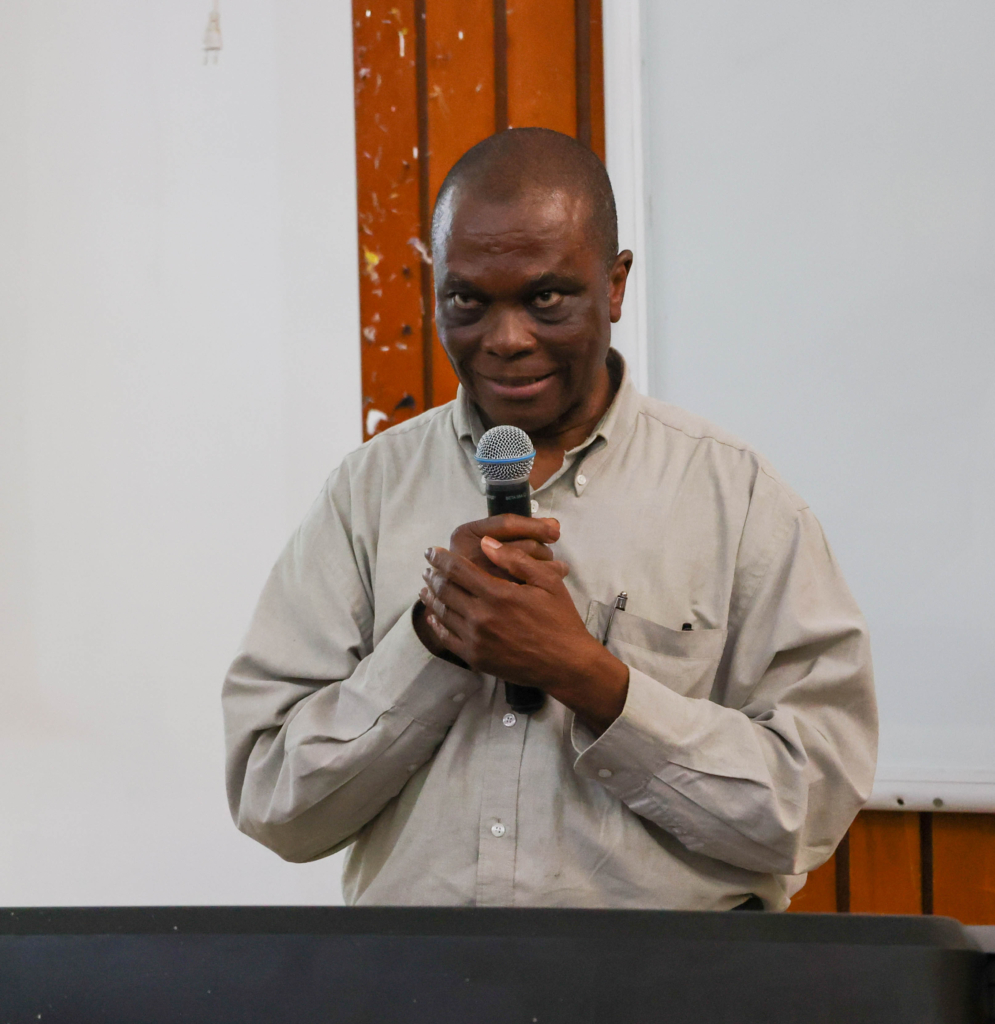Prof. Emmanuel Yiridoe, an agricultural and renewable energy economist from Dalhousie University, Canada, has called on Ghanaian citizens to take a more active role in the fight against illegal mining (galamsey), particularly by holding leaders accountable through legal and civil action.
Delivering a lecture during the opening session of a two-week workshop organized by the College of Agriculture and Natural Resources at KNUST, Prof. Yiridoe expressed concern about the limited role civil society plays in addressing the galamsey crisis.
He highlighted a glaring lack of legal accountability, noting that no civil society organization or group of citizens has taken joint legal action alongside institutions like the Minerals Commission or the Ministry of Lands and Natural Resources to challenge the president in court for stewardship failures in managing the country’s natural resources.
“I have not come across any instance where a group of Ghanaians or civil society organizations has collaborated with relevant state institutions to hold the president accountable in court for failing to protect the environment from illegal mining,” he stated.
Prof. Yiridoe reminded participants that under the Constitution, the president is entrusted with the stewardship of the country’s natural resources. However, he noted that this constitutional mandate has not been tested or enforced through the courts.
“Yet, as citizens, we have not challenged the president’s constitutional responsibility in court to demand accountability. This silence undermines our democratic institutions and weakens efforts to protect the environment,” he asserted. “Public demonstrations tend to be small in scale, and in some cases, they are even cancelled at the last minute. This kind of civil apathy hinders meaningful change.”
Reflecting on broader societal shifts, Prof. Yiridoe observed that moral and ethical standards have eroded over time, weakening the collective will to protect natural resources.
“Value judgments evolve across generations. Decades ago, even an unemployed youth would have hesitated to pollute the Pra River, guided by moral and communal values. Today, such value judgments have weakened considerably,” he lamented.
He emphasized that regulatory frameworks and enforcement mechanisms must be strengthened if Ghana is to win the fight against illegal mining.
“When companies are issued mining licenses, they are bound by conditions related to environmental remediation and community engagement. However, without strong enforcement, these obligations are routinely ignored, allowing environmental degradation to continue unchecked,” he explained.
Prof. Yiridoe also raised concerns about the breakdown of both formal institutions and informal norms that once regulated behavior. He argued that simply deploying the military will not resolve the complex issues tied to illegal mining.
“Our institutional checks, both formal and informal, have collapsed. Armed military presence alone cannot restore order. Local government structures, like district assemblies, must also be held accountable. When communities are directly involved, the outcomes are better. In many cases, brute force proves ineffective,” he said. “The challenges surrounding mineral resource exploitation are deeply connected to economic, social, ecological, and biological systems. Solutions must take all these elements into account.”
The lecture was attended by key stakeholders, including the Provost of the College, Prof. Dadson Awnyo-Vitor; the Dean of the Faculty of Agriculture, Dr. Camillus A. Wongnaa; the convener; senior members of the University; and graduate students.
DISCLAIMER: The Views, Comments, Opinions, Contributions and Statements made by Readers and Contributors on this platform do not necessarily represent the views or policy of Multimedia Group Limited.
DISCLAIMER: The Views, Comments, Opinions, Contributions and Statements made by Readers and Contributors on this platform do not necessarily represent the views or policy of Multimedia Group Limited.


